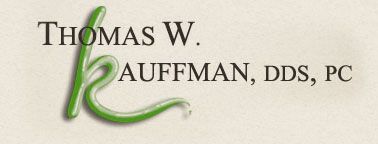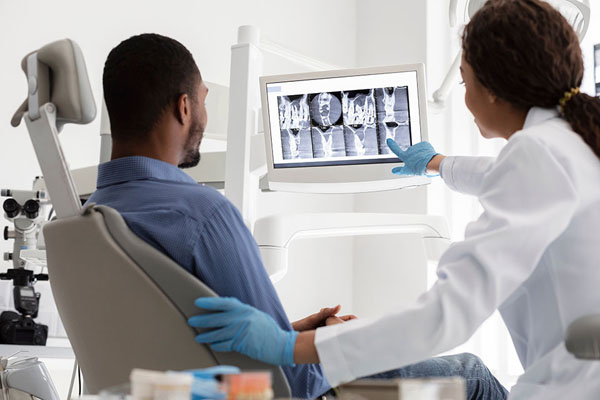Tooth Extractions in Atlanta
Do You Need a Tooth Extracted?
No one wants to hear that they need a tooth extracted, but sometimes, it’s the best dental treatment for our oral health. Our Atlanta dentist provides reliable and safe tooth extractions to ensure that our patients get the best care possible.
To schedule an appointment, contact our dental office by calling (404) 524-1981.
What Is Tooth Extraction?
Tooth extraction, also known as dental extraction, is a routine dental procedure that involves removing a tooth from its socket. This removal can be necessary for several reasons, including severe tooth decay or damage, periodontal disease, crowding, infection, or problems with impacted wisdom teeth.
Our Atlanta dentist prioritizes keeping your natural teeth healthy. However, there are some cases in which removing a tooth through extraction is best for protecting your overall wellness.
Types of Tooth Extraction
Simple Tooth Extraction
Simple tooth extraction is a dental procedure that involves removing a tooth visible above the gum line. This procedure is usually performed with the use of a local anesthetic, and the dentist uses special tools to loosen the tooth and remove it with forceps. Simple tooth extraction is a relatively quick and straightforward procedure, and the recovery time is fairly short for most patients.
Surgical Tooth Extraction
Surgical tooth extraction, a more complex form of tooth removal, is necessary when a tooth is either impacted or hasn’t fully emerged from the gum line. A surgical extraction can include multiple teeth being removed at a time and may require both local anesthetic and dental sedation, and the dentist may need to make an incision in the gum tissue to access the tooth.
In some cases, the dentist may need to remove some bone tissue to fully extract the tooth. The recovery time for surgical tooth extraction can take anywhere from a few days to a few weeks depending on the person. The patient may need to take prescription pain medication to manage any discomfort.
Reasons For Tooth Extraction, Including Wisdom Teeth
Tooth extraction may be a preventative measure to avoid potential dental problems in the future. Common reasons dentists perform tooth extractions include:
- Tooth Decay: If a tooth has extensive decay that a filling, root canal, or other treatment can’t repair, extraction may prevent further damage to surrounding teeth and tissues.
- Gum Disease: Advanced periodontal disease can cause the gums to recede and the teeth to loosen, making extraction necessary to prevent further damage.
- Impacted Teeth: Teeth unable to fully emerge from the gums, such as wisdom teeth, can become impacted and cause pain, infection, and damage to surrounding teeth.
- Crowding: Tooth extraction can make room for orthodontic treatment or address issues with overcrowding.
- Trauma: A tooth may need extraction following damage from a traumatic injury.
- Infection: If a tooth becomes infected and it spreads to the surrounding tissues or bone, extraction may be necessary to prevent further damage and infection.
- Preparation for Dentures: If a patient needs dentures, extraction may be necessary to remove any remaining natural teeth that could interfere with the fit and comfort of the dentures. If another tooth replacement option is needed, the patient will also be prepared for that.
Problems with Impacted Wisdom Teeth
Impacted wisdom teeth can lead to a variety of dental issues that can affect your overall oral health. When wisdom teeth are unable to fully emerge from the gum line, they can cause significant pain and discomfort. This pain often stems from the pressure exerted on the surrounding teeth and tissues.
In addition to pain, impacted wisdom teeth are prone to infection. The partial eruption of these teeth creates pockets where bacteria can thrive, leading to abscesses, cysts, and other complications. This infection can spread to other areas of the mouth, causing further issues.
Another concern with impacted wisdom teeth is the potential damage to adjacent teeth. As these teeth push against their neighbors, they can cause crowding, crookedness, or even damage to the surrounding bone. This can lead to long-term dental problems that may require additional treatment.
Impacted wisdom teeth can also contribute to gum disease, including gingivitis and periodontitis. The difficulty in cleaning these teeth properly can result in plaque buildup, which can inflame the gums and lead to more severe periodontal issues.
In some cases, impacted wisdom teeth can form cysts or tumors around them. These growths can cause further complications and may require surgical intervention to remove.
Lastly, the difficulty in cleaning impacted wisdom teeth makes them more susceptible to tooth decay. This decay can spread to other teeth, exacerbating oral health problems.
Wisdom Teeth Removal
Wisdom teeth removal is a common surgical procedure aimed at preventing future dental issues and alleviating current symptoms. This procedure is typically performed by an oral surgeon or a dentist with specialized training in surgical extractions.
The primary goal of wisdom teeth removal is to address problems associated with impacted wisdom teeth. By removing these teeth, patients can avoid complications such as pain, swelling, infection, and damage to surrounding teeth. The procedure also helps prevent the development of cysts, tumors, and gum disease.
During the surgical procedure, the oral surgeon will administer local anesthesia to numb the area around the wisdom teeth. In some cases, sedation may be used to ensure the patient’s comfort. The surgeon will then make an incision in the gum tissue to access the impacted teeth. If necessary, the teeth may be broken into smaller pieces for easier removal.
After the wisdom teeth are removed, the oral surgeon will clean the extraction site and may place stitches to promote healing. Patients will receive detailed aftercare instructions to ensure a smooth recovery.
Preparation for Tooth Extraction
Preparing for a tooth extraction involves several important steps to ensure the procedure goes smoothly and safely. Your dentist or oral surgeon will begin by reviewing your medical and dental history. This review helps identify any potential risks or complications that could arise during the extraction.
Next, X-rays will be taken to assess the position and shape of the tooth, as well as the surrounding bone and tissues. These images provide valuable information that guides the dentist or oral surgeon in planning the extraction.
Before the procedure begins, local anesthesia will be administered to numb the area around the tooth. This ensures that you do not feel any pain during the extraction. In some cases, sedation may also be used to help you relax.
The extraction site will be carefully prepared by cleaning and disinfecting the area. All necessary instruments will be sterilized to maintain a sterile environment and prevent infection.
The Tooth Extraction Process with an Oral Surgeon
The tooth extraction process begins with a thorough examination of the affected tooth and surrounding tissues. Often, patients will need X-rays taken so the dentist can assess the tooth’s position and extent of any damage or decay. Once the patient is prepared, the dentist or oral surgeon administers an anesthetic to numb the area around the tooth. If the tooth is impacted or difficult to remove, an incision may be made in the gum tissue to access the tooth.
Next, our dentist will use specialized tools to loosen the tooth from the socket and carefully remove it. Occasionally, the tooth may need to be broken into smaller pieces to make it easier to remove.
After our dentist has extracted the tooth, the dentist or oral surgeon cleans the area and may place stitches to help the gums heal. The patient will receive instructions on caring for the extraction site, including avoiding certain foods and activities for a while.
Oral Surgeon vs. Dentist
When it comes to tooth extractions, both oral surgeons and dentists are qualified to perform the procedure. However, there are key differences between the two that may influence your choice.
Oral surgeons have specialized training in surgical procedures, including complex tooth extractions. This additional training equips them with the skills and expertise needed to handle more challenging cases, such as impacted wisdom teeth or surgical extractions.
Dentists, on the other hand, typically have more general training in a wide range of dental procedures. They are well-suited for performing simple extractions, where the tooth is visible above the gum line and can be easily removed.
Oral surgeons also have access to advanced equipment and technology, such as surgical microscopes and lasers. These tools can aid in the extraction process, making it more precise and efficient.
Blood Clot Formation
After a tooth extraction, the formation of a blood clot in the extraction site is a crucial part of the healing process. This blood clot serves several important functions that promote recovery.
Firstly, the blood clot protects the extraction site from bacteria and other contaminants. By covering the exposed bone and tissues, it helps prevent infection and promotes a clean healing environment.
Secondly, the blood clot provides a foundation for the growth of new tissue and bone. This is essential for the regeneration of the extraction site and the restoration of your oral health.
Additionally, the blood clot helps to reduce bleeding and promote hemostasis. By sealing the extraction site, it minimizes the risk of excessive bleeding and supports the body’s natural healing processes.
To ensure that the blood clot forms properly and the extraction site heals correctly, it is important to follow your dentist or oral surgeon’s instructions. This may include avoiding smoking and tobacco products, refraining from strenuous activities, eating soft foods, and avoiding drinking through a straw. Applying ice packs to reduce swelling can also be beneficial.
By adhering to these guidelines, you can support the healing process and reduce the risk of complications after your tooth extraction.
Tooth Extraction Aftercare and Blood Clot Management
After tooth extraction, following proper aftercare instructions is vital to promote healing and prevent complications. Here are some general guidelines for tooth extraction aftercare:
- Bite Down on a Gauze Pad: Bite gently on a gauze pad for 30 to 45 minutes after the extraction to help stop bleeding. Replace the gauze as needed.
- Avoid Strenuous Activities: Avoid any strenuous activities, such as exercise, for at least 24 hours after the extraction to help prevent bleeding or other complications from occurring.
- Take Pain Relievers: Take pain relievers as prescribed by your dentist or oral surgeon to help manage any pain, discomfort, and swelling.
- Apply Ice: Ice the affected area for 10 to 20 minutes at a time to help reduce swelling.
- Rest: Rest for the first 24 hours after the extraction and avoid any activities that could dislodge the blood clot from the tooth socket.
- Avoid Smoking: Avoid smoking or using tobacco products for at least 48 hours after the extraction, as they can slow the healing process.
- Eat Soft Foods: Eat soft foods, such as soup, yogurt, or mashed potatoes, for the first few days after the extraction. Avoid hard, crunchy, or sticky foods that could irritate the extraction site.
- Rinse With Salt Water: Rinse your mouth with salt water (1/2 teaspoon of salt in 8 ounces of warm water) 24 hours after the extraction and continue two to three times a day for the next few days. This rinse can promote healing and reduce the risk of infection.
- Brush Carefully: Brush your teeth carefully, avoiding the extraction site, for the first few days after the extraction.
- Attend Follow-Up Appointments: Attend follow-up appointments with your dentist or oral surgeon to ensure proper healing and monitor for any complications.
Following these aftercare instructions can help ensure a smooth recovery after tooth extraction. If you experience severe pain or any unusual symptoms or complications, contact our dentist immediately.
Risks and Complications of Tooth Extraction
While tooth extractions are generally safe and routine procedures, there are potential risks and complications to keep in mind. These may include:
- Bleeding
- Infection
- Nerve damage
- Dry socket (a painful condition that can occur when the blood clot in the socket is dislodged)
- Damage to surrounding teeth or tissues
- Reactions to anesthetic
Discuss any concerns with our Atlanta dentist before the procedure, and carefully follow aftercare instructions to help minimize your risk of complications after getting a tooth pulled.
Tooth Extraction Cost
On average, tooth extraction can range from $120 to $250 for a basic extraction. However, for those getting their wisdom teeth extracted, costs can range between $1,000 to $3,000 per tooth. Your total estimated cost will vary depending on factors such as:
- Type of extraction
- Where you’re located
- Dental insurance plan
- Additional procedures
- The experience of the dentists and oral surgeons
- Number of teeth being extracted
Frequently Asked Questions
Is tooth extraction painful?
The tooth extraction process is usually not painful, as local anesthetic numbs the area. However, patients may experience some discomfort or pain after the procedure, which is easily manageable with pain medication prescribed by your dentist or oral surgeon.
How long does it take to recover from a tooth extraction?
The recovery time can vary depending on the individual and the complexity of the extraction. Most people can return to normal activities within a few days to a week after the procedure, but it may take several weeks to fully heal.
Can I eat after a tooth extraction?
Dentists generally recommend sticking to soft, cool foods for the first few days after the procedure and avoiding hard, crunchy, or sticky foods that could irritate the extraction site. Be sure to follow any specific aftercare instructions provided by your dentist or oral surgeon.
Do I need to replace a missing tooth after extraction?
Many dental professionals will suggest replacing missing teeth to prevent problems with chewing, speaking, and the alignment of surrounding teeth. Your dentist or oral surgeon can discuss replacement options with you, such as dental implants, bridges, or dentures.
Safe and Effective Tooth Extraction at Thomas W. Kauffman, DDS, PC
While dental professionals will do everything to prioritize saving and protecting their patients’ natural teeth, tooth extraction is sometimes the best option for their oral health. By removing an infected, impacted, or damaged tooth, your dentist or oral surgeon can save the surrounding teeth and jaw from further damage.
Learn more about the potential benefits of tooth extraction by contacting our Atlanta dentist at (404) 524-1981. We provide safe oral surgery services to ensure your smile stays beautiful and healthy.


